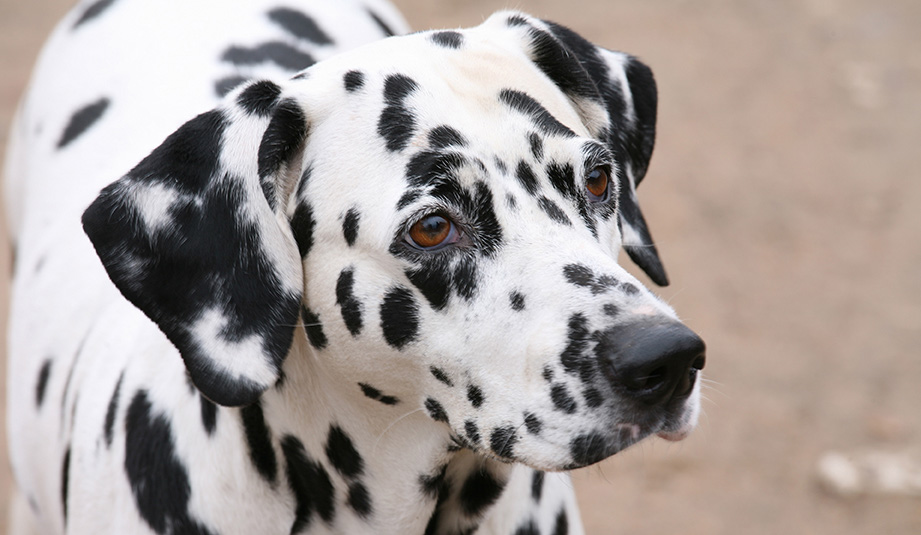Dalmation Information

History
Very little is known about the history of the Dalmatian however it is thought that they originated in Dalmatia, a small region in Croatia.
In the 19thcentury, they were reportedly used as guard dogs by carriage drivers in England and became very popular there.
The first Dalmatian was officially recognised in England in the mid-19thcentury and was registered with the American Kennel Club in 1888 and the breed’s parent club, the Dalmatian Club of America, was founded in 190
Characteristics
- Watchdog
- Spotted
- Loyal
Dalmation Temperament & Size
These medium to large sized short haired dogs are renowned for their remarkable spotted coat.
Interestingly, Dalmatians are actually born without spots, with the spots appearing after two weeks, and only become fully developed by 12 months of age.
They shed heavily all year round and require brushing every couple of days to remove the loose hairs.
Dalmatians are intelligent, playful, loyal and active dogs. They do require daily exercise as they can become hyperactive if not.
They socialise well with other animals, are great companions which makes them a great family pet. They are however more suited to families with no toddlers as they are high energy dogs.
Dalmation Life Span & Health Problems
Average lifespan of 12 – 14 years
Common Illnesses include;
- Hip Dysplasia – Abnormal formation of the hip joints causing early onset degenerative joint disease.
- Congenital Deafness – This is a serious genetic problem affecting approximately 30% of Dalmatians. They can be deaf in one or both eyes. Breeding dogs should always be tested prior to mating.
- Hypothyroidism – Underactive thyroid gland causing obesity, lethargy, ear infections and skin problems.
- Atopic dermatitis – Hypersensitivity to environmental allergens causing intense pruritus and inflammation of the skin resulting in skin trauma and infection.
- Urinary Stones – Dalmatians are predisposed to excessive amounts of crystals which form stones in the urinary tract which can lead to infection or blockage. The most common stones are urate as they produce excess uric acid in their urine.
- Conjunctival Dermoid – An irregularity on the conjunctiva. If it causes discomfort it requires surgical removal.
